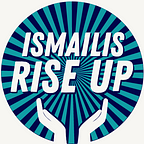IRUxMovement School: A training for Ismaili Muslim Progressive Organizers.
By: Zubair Merchant, Director of Organizing
It’s been seven months since the historic 2020 election, and yet, it remains all that I think about in the days since.
Sure, I was very happy with the headline-level outcome: we saved our democracy from the grips of a President wholly uninterested in the rule of law. But the thing I haven’t quite come to grips with has to do with the uneasy facts about that election that, collectively, we’ve tended to gloss over. Like the fact that in 2020, Trump received 11 million more votes than he did in 2016. Or the fact that a not-insignificant margin of Latinx and Asian American voters found themselves moving from left-of-center into Trump’s political camp.
Even more worrying, is that while the 2020 election was the highest turnout election in American history (and the first time an incumbent president had been defeated in my lifetime!), and while high-turnout in elections is generally a very good thing (democratize the vote!), this trend means we’ll be seeing more and more nail-biting elections, where the win is anyone’s for the taking, becoming the norm in states like Pennsylvania, Georgia, and Arizona. In elections like these, it’s the field margin that makes the difference between what issues and candidates win or lose. The field margin is the margin of victory that can only be delivered through a strong campaign field operation.
The thing is, you don’t need to be a professional organizer in order to do the work that contributes to winning the field margin for progressive causes and candidates. In 2020, I joined Ismailis Rise Up to lead the research data that informed IRU’s field organizing operation in five battleground states that have sizable Ismaili populations. I had the pleasure of working with IRU volunteer organizers that gave a few hours of their time every week to turn out hundreds of Ismaili voters — many of them first-time voters — in both the 2020 Presidential Election and 2021 Georgia Senate Runoff. What made the difference, for me and the volunteers I worked with, was a working-knowledge of how to organize, and the support to do it effectively.
That’s why I’ve taken on an even bigger role with IRU, to design an original organizing curriculum for progressive Ismailis interested in professionally developing a competency in issue-based activism. We’re teaming up with the Movement School (the sister organization to Justice Democrats) to recruit, train, and certify progressive American Ismaili Muslims interested in doing the enduring work of community organizing in an effort to bring our faith community’s civic participation and politics in greater alignment with our values. In this course, you will learn the skills necessary to talk to other Ismailis about issues you care about, persuade strangers to take up a new political stance, and be prepared to support any campaign or organization’s Get-Out-The-Vote efforts.
To get a taste of our course modules, checkout our class list:
- The Nexus: Ismailism and and Organizing
- Understanding the Issues at Stake: Income and wealth inequality, Climate Change, Racial Justice, and Healthcare For All.
- Organizing 101
- Organizing 102
- Muslim “Constituency” Organizing
- Target Setting and Campaign Plan Building — Presenting Your Capstone Campaign Proposal.
One last thing — organizing is more than knocking on doors and making calls (although that is a big part of it). It’s about creating spaces for deep learning, dialogue, and action that inevitably reverberate throughout a local ecosystem. We’ve already seen early evidence of this effect — within weeks of the Ismailis Rise Up campaign launch, our Ismaili institutions, for the first time ever, made affirmative efforts to inform the Jamat about the importance of voting. The goals of deep and enduring community organizing however, go well beyond pushing for intra-community institutional reforms — our goal is to improve the society we live in by changing our community’s relationship to the political issues that impact us.
Learning to be an organizer can give you the soft skills and leadership experience to succeed in any job or industry regardless of subject matter. And if you don’t want to take my word for it, I heard a 24-year-old community organizer in the South Side of Chicago found it pretty useful when he decided to run for President of the United States two decades later.
